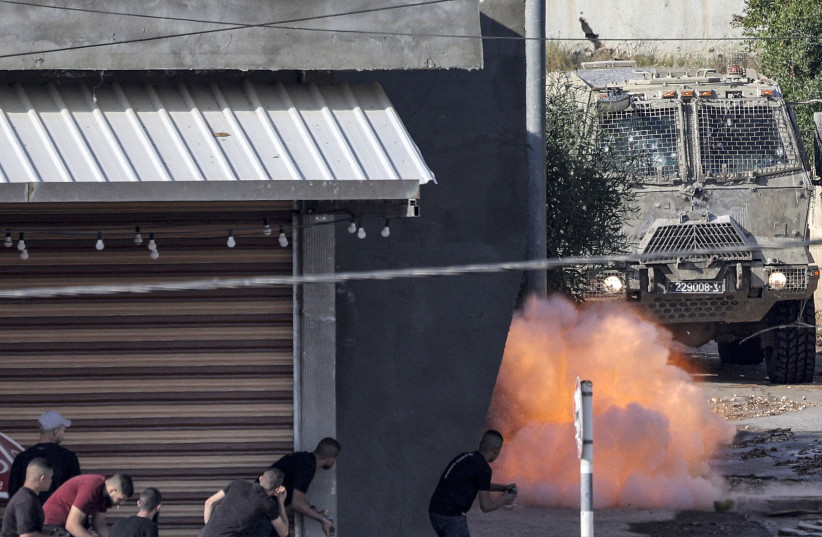Jenin must not become Gaza: Rocket launches will force Israel to make a choice
The rocket fire from northern Samaria means Israel has reached a decision point. But it must not enter a dangerous adventure without having a clear diplomatic goal that complements the security objectives. The PA's role in the day after is also key.

If Israel chooses to launch an operation it would have to take into consideration that it could spill over to another theater. There could also be revenge attacks, and the terrorists in Gaza might choose to enter the fray. Israeli Arabs may also decide to join the fighting.
Apart from that, we should assume that Israel will have its hands full explaining the operation on the world stage and engage the Arab world, including the Abraham Accords signatories.
The security apparatuses have had many achievements in the ongoing terrorist wave. But they have yet to create the desired strategic impact: The motivation for attacks has not subsided; the number of the attacks and attempted attacks have not dropped, and neither has their lethality. Against this backdrop, there are those who believe that the surgical approach has become obsolete, and this is all the more evident in the recent rocket attacks from Jenin.
The rise of the rocket threat in Gaza has been seared into the collective memory of the security establishment and the decision-makers. Initially, the rocket development efforts were mocked at, only to soon become sophisticated to the point that they gave Gazan terrorists the ability to put large swaths of the population under threat. The Palestinian Authority's contribution to this reality, in its inaction and action, is beyond doubt. And we should keep that in mind as we go forward.
But Israel cannot enter such a dangerous adventure without having a clear diplomatic goal that complements the security objectives.
The civilian echelon must answer the question of whether the PA is an Israeli interest or whether it serves as a glass ceiling for Israeli action. The answer to this question will not make it easy for the military echelon. The current government doesn't want to see the preservation of the PA as a national interest but in light of the fact that it already exists and that getting rid of it would come at an exorbitant price, Israel will probably not act to have it disbanded. The Israeli leadership will instruct the IDF not to consider the PA as an obstacle to the carrying out of missions needed for security, but the military will find it hard to ignore its shadow.
Another issue that will impact how Israel will act relates to the"day after" the operation. The demilitarization of the area so that it could be handed over to PA forces is a receipt for continued rounds of escalations that have become the hallmark of the situation in Gaza. After all, we cannot assume that the PA in its current state, plagued by succession battles for the era after President Mahmoud Abbas, will be able to act effectively vis-a-vis terrorist groups and local militias more than it has been so far. If the goal of an operation is to clear the area and then hand it over to the PA, then it is not worth the risks associated with such a wide-scale offensive. In this case, perhaps we should prefer surgical strikes and pinpointed raids.
Israel has to assume that the development of rocket-related know-how in Jenin was partially a result of help from Hamas elements in the Gaza Strip or beyond. The Israeli security establishment must track them down and make sure they are also held accountable. If it turns out that Hamas had used various entry permits to Israel for Palestinian workers to advance this cause, then Israel should end this dangerous practice of allowing entry.
No comments:
Post a Comment